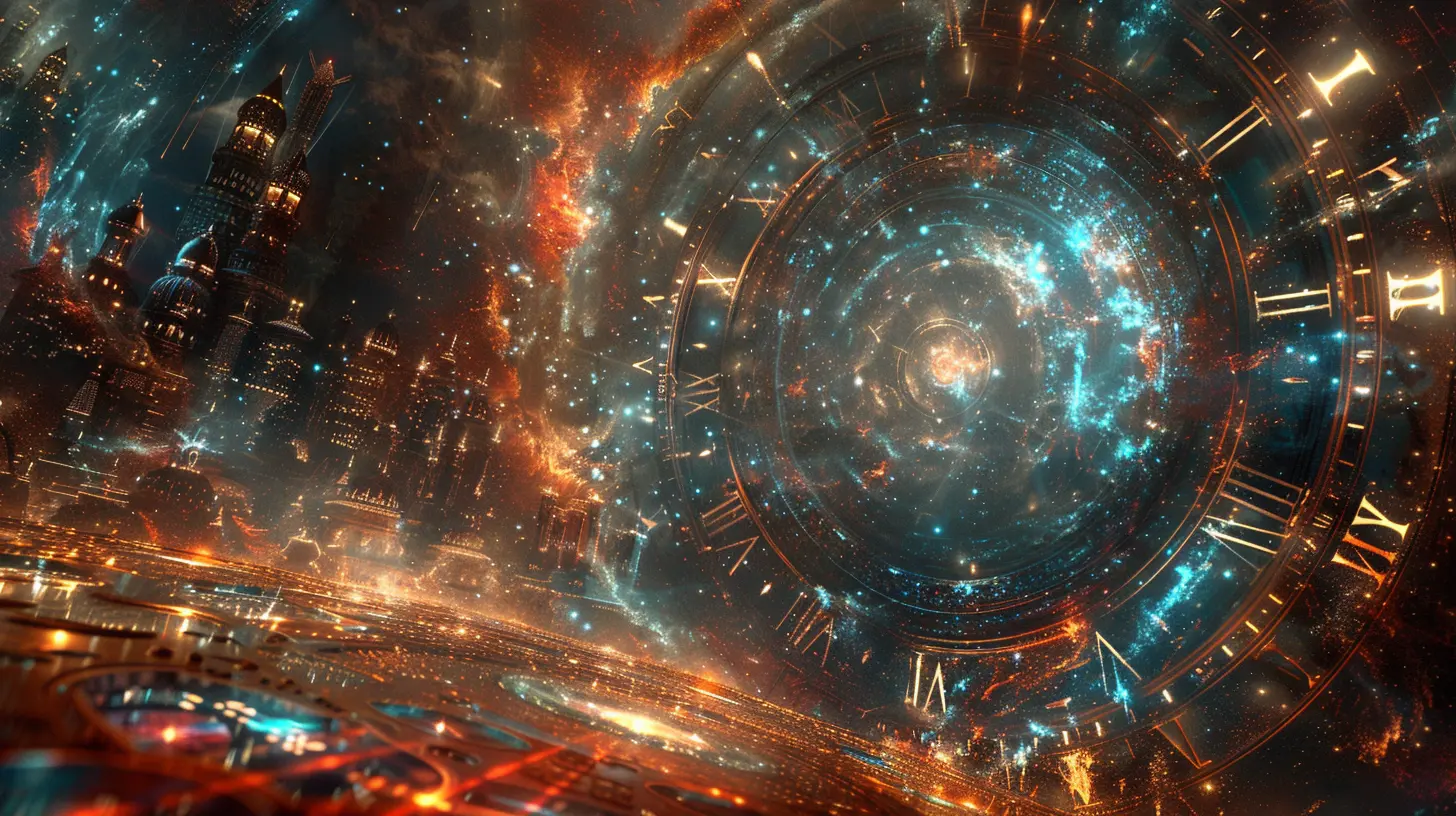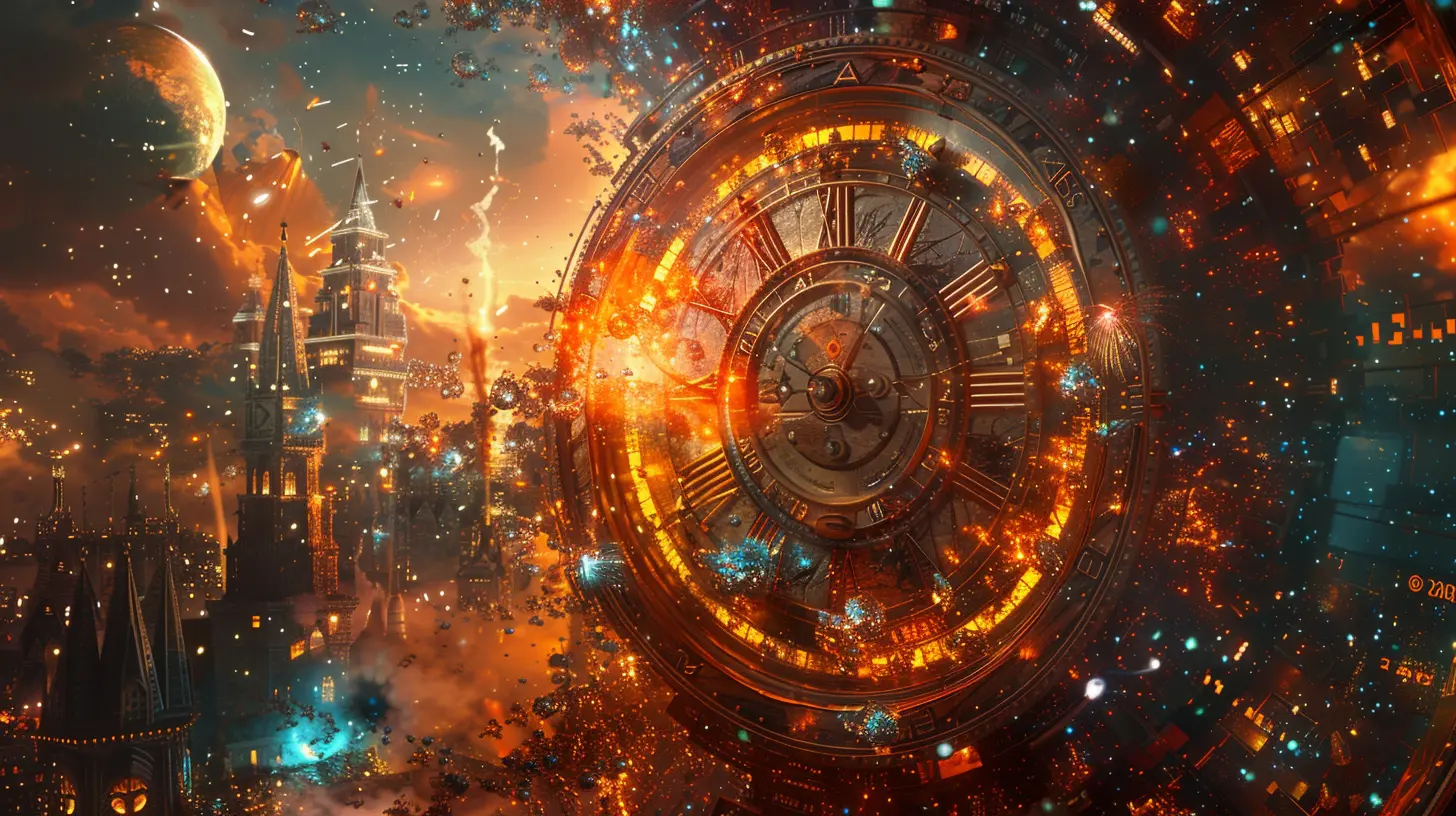Time-Bending Titles: Games Where Time Is Your Weapon
29 July 2025
If you could control time, what would you do with it? Slow it down to dodge bullets? Reverse it to fix your mistakes? Or maybe even freeze it and outsmart your enemies in a world moving at a snail’s pace? Well, in the world of video games, you don’t have to wonder—you get to live those scenarios.
Welcome to the wild, mind-bending corner of gaming where time isn’t just ticking in the background—it’s your biggest weapon, your greatest ally, and sometimes, your worst enemy. Let’s dive into some of the most unforgettable titles that let you mess with time itself. Strap in, because we’re about to bend reality like a pretzel.
Why Time Mechanics in Games Feel So Damn Cool
Before we jump into the list of legendary games, let’s break down why the whole “control time” thing works so well in gaming. Unlike movies or books—where you're just watching someone bend time—in games, you’re the one holding the clock. You’re not just a spectator. You’re the master of cause and effect.Time mechanics add depth, strategy, and complexity. Think of them like cheat codes that are baked right into the gameplay. When used right, they make you feel like an all-powerful time wizard, turning impossible odds into epic wins.
1. Braid – A Puzzle Wrapped in Time
Let’s kick things off with a classic. If you’ve never played Braid, you’re missing out on one of the most poetic uses of time manipulation in gaming.At first glance, Braid looks like a colorful 2D platformer—pretty chill, right? Wrong. Every level introduces a new twist on time: rewinding your actions, interacting with objects immune to time changes, and more. It’s like a brain teaser wrapped in a watercolor painting.
The genius of Braid isn’t just the mechanics—it’s how those mechanics tell a story. You end up questioning the nature of time, memory, and regret. Yeah, it gets deep.
2. Prince of Persia: The Sands of Time – Rewind That Death
Remember the early 2000s? Baggy jeans, frosted tips, and Prince of Persia: The Sands of Time. This game was a total game-changer (pun intended).The biggest draw? The Dagger of Time. Miss a tricky jump and plunge to your doom? No worries. Just hit rewind and try again. The mechanic felt revolutionary back then, and honestly, it still holds up.
The Sands of Time didn’t just make dying less frustrating—it made you feel like a time-hopping ninja. It rewarded experimentation and made combat and parkour feel fluid and forgiving.
3. Superhot – Time Only Moves When You Do
Imagine a first-person shooter where everything moves as fast—or as slow—as you do. That’s Superhot in a nutshell.You're in a minimalist, Matrix-like world, dodging bullets in slow-mo while planning your next move. Time freezes when you stop moving, so every battle turns into a puzzle. What’s the best sequence of moves to take out enemies before they take you out?
Superhot makes you feel like an action-movie hero in slow motion. It's creative, tense, and incredibly addictive. Once you start thinking in “bullet time,” there's no going back.
4. Life is Strange – Choices and Rewinds
Not all time manipulation is about combat and explosions. Sometimes, it’s about rewinding conversations and seeing the butterfly effects unfold. Life is Strange does just that.You play Max, a photography student who discovers she can rewind time. But instead of flicking bullets away, you’re rethinking your decisions, fixing mistakes, and unraveling mysteries. It’s like playing a supernatural version of “What if?”
What makes Life is Strange special is how personal the time powers feel. It’s not about being a hero—it’s about being human. And sometimes, the more you try to fix things, the worse they get. Talk about emotional time travel.
5. Titanfall 2 – One Level to Rule Them All
You’ve probably heard about Titanfall 2’s campaign—even if you haven’t played it. Why? One word: “Effect and Cause.”This level lets you jump between two timelines on the fly. One second you’re in a burning facility, the next you’re in that same building—years earlier, before everything went to hell.
The way the game ties the mechanic into both combat and storytelling is absolutely top-tier. You’ll fight enemies in one timeline, zip to the past to flank them, then bounce back to finish the job. It’s slick. It’s thrilling. It’s unforgettable.
6. The Forgotten City – A Time Loop Mystery
Originally a Skyrim mod, The Forgotten City grew into a full game—and a damn good one at that.You’re trapped in a mysterious Roman city where breaking a “Golden Rule” dooms everyone. So what do you do? You live the same day over and over, gathering clues, solving puzzles, and trying to save everyone.
It’s like Groundhog Day meets Clue. The coolest part? The more you know, the stronger you get—not with weapons, but with knowledge. That “Aha!” moment hits different when it literally rewrites the future.
7. Quantum Break – Time Powers Meet Live-Action Drama
Quantum Break went big. Like, time-explosion-set-pieces and live-action-TV-show big.Made by the minds behind Max Payne and Control, this game gave you powers like freezing time, creating time shields, and dashing through frozen moments like a sci-fi superhero. Between the action-packed gameplay and the live-action episodes that reflected your choices, this was one ambitious ride.
Was it perfect? Not quite. But did it make time manipulation feel like a blockbuster event? Heck yes.
8. Returnal – Dying Is the Game
In Returnal, death isn’t just a mechanic—it’s a plot point. Every time you die, the alien planet shifts, memories reset, and the cycle begins again.It’s a time loop that pulls zero punches. You’re stuck in a brutal, ever-changing world where progress comes through perseverance. It’s like playing Edge of Tomorrow with Greek mythology mixed in.
And the kicker? You’re not just fighting monsters—you’re unraveling your past. Every run gets you closer to the truth. If that doesn’t scream “time is your weapon,” I don’t know what does.
9. The Legend of Zelda: Majora’s Mask – The Clock is Ticking
Let’s throw it back to the N64 days. Majora’s Mask gave us one of the most haunting uses of time in gaming.You’ve got 72 in-game hours to stop the moon from crashing into the world. The catch? You can reset time, but doing so resets many of your actions, too. It’s a constant juggle—what to do, what to save, and what to sacrifice.
Majora’s Mask turns time into a pressure cooker full of side quests, hidden secrets, and eerie storytelling. It’s Zelda like you’ve never seen it before.
10. Deathloop – Time to Kill (Again and Again)
Imagine being trapped in a time loop where the only way out is to kill eight targets before the day resets. That’s Deathloop in a nutshell—and it’s as chaotic and brilliant as it sounds.You’re Colt, an assassin stuck on Blackreef Island. Every loop gives you more intel, better gear, and new ways to approach the mission. The game encourages experimentation, creativity, and good ol’ trial and error.
What’s wild is that you’re being hunted too—sometimes by another player. So while you’re trying to break the loop, someone else might be trying to keep you stuck in it. Brilliant, right?
Why We Love Games That Let Us Control Time
There’s just something satisfying about breaking the rules of reality. Tossing out the idea of linear time opens up gameplay possibilities that are fresh, fun, and often mind-melting.Whether it’s solving mysteries, dodging bullets, or saving the world repeatedly, these games scratch an itch that regular mechanics just can’t reach. It’s power fantasy meets puzzle box. And once you play one of these time-bending titles, you’ll realize: time isn’t just a resource—it’s the best weapon in your arsenal.
So next time you pick up a game and you’re offered the power to rewind, freeze, or fast-forward time—don’t hesitate. Lean in. Because reality can wait.
Honorable Mentions – Because Time Deserves More Love
- Outer Wilds – A space-time loop exploration game that’s as deep as it is beautiful.- Cris Tales – Classic RPG with a twist: play in past, present, and future at once.
- Timeshift – An underrated shooter with full-spectrum time control.
- TimeSplitters Series – Zany fun with some fun time-hopping characters and missions.
Final Thoughts
Time travel and manipulation aren't just cool gimmicks—they can redefine how we play and think within a game. These titles show that when developers mess with time, magic happens. And hey, who wouldn't want to bend time to their will at least once?all images in this post were generated using AI tools
Category:
Game ReviewsAuthor:

Greyson McVeigh
Discussion
rate this article
1 comments
Enid Lambert
Time-bending games offer a unique twist on gameplay, challenging our perception of strategy and reaction. They immerse players in fascinating narratives where every second counts. Definitely worth exploring for any gamer!
August 29, 2025 at 3:18 PM

Greyson McVeigh
Thank you for your insights! Time-bending games truly redefine strategy and storytelling, making every moment crucial. They’re definitely a must-try for gamers seeking a fresh experience!


